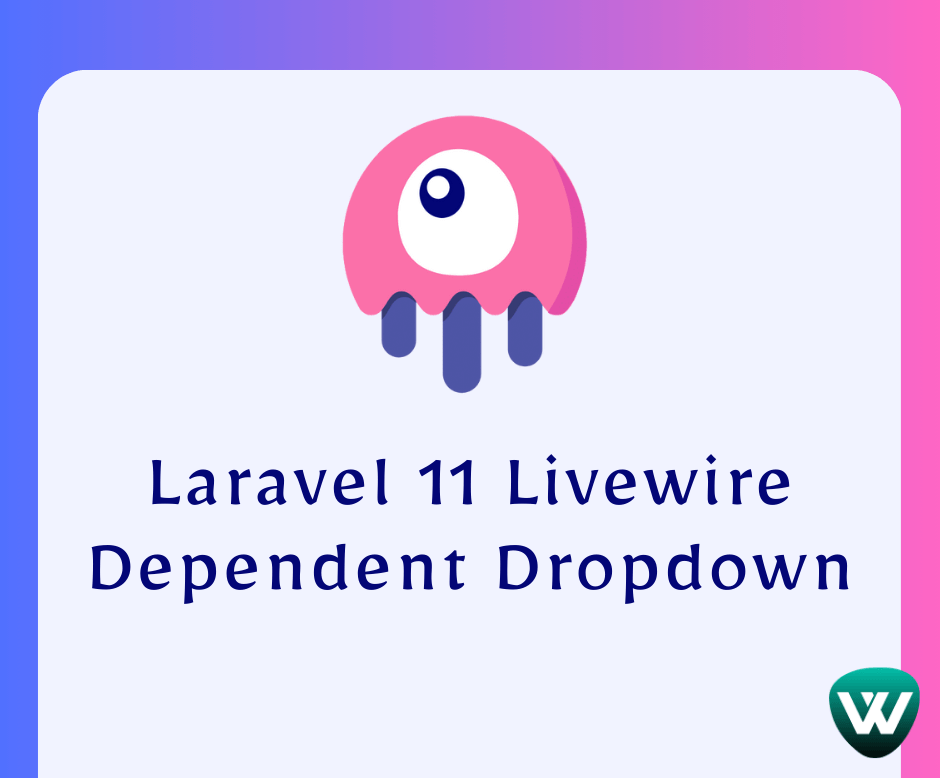Laravel 8 Multiple Database Connections
Websolutionstuff | Apr-19-2021 | Categories : Laravel MySQL
Hello Freinds,
In this tutorial we will see laravel 8 multiple database connections. Today I will give you step by step implementation of how to use laravel 8 multiple database connections.
Many times we have requirment in our project to use multiple database connection like MySQL, MongoDB, PostgreSQL etc. When you work with very large amount of project then you will need to manage multiple database connection. So, in this tutorial we will see one or more database connection in single laravel application .
So let's follow below steps for laravel 8 multiple database connection.
// Database 1
DB_CONNECTION=mysql
DB_HOST=127.0.0.1
DB_PORT=3306
DB_DATABASE=database_1
DB_USERNAME=root
DB_PASSWORD=
// Database 2
DB_CONNECTION_SECOND=mysql
DB_HOST_SECOND=127.0.0.1
DB_PORT_SECOND=3306
DB_DATABASE_SECOND=database_2
DB_USERNAME_SECOND=root
DB_PASSWORD_SECOND=
Now, as we created variable in .env file we need to use that variable on config file. so let's open database.php file and add new connections key as like bellow:
config/database.php
<?php
use Illuminate\Support\Str;
return [
'default' => env('DB_CONNECTION', 'mysql'),
'connections' => [
.....
'mysql' => [
'driver' => 'mysql',
'url' => env('DATABASE_URL'),
'host' => env('DB_HOST', '127.0.0.1'),
'port' => env('DB_PORT', '3306'),
'database' => env('DB_DATABASE', 'forge'),
'username' => env('DB_USERNAME', 'forge'),
'password' => env('DB_PASSWORD', ''),
'unix_socket' => env('DB_SOCKET', ''),
'charset' => 'utf8mb4',
'collation' => 'utf8mb4_unicode_ci',
'prefix' => '',
'prefix_indexes' => true,
'strict' => true,
'engine' => null,
'options' => extension_loaded('pdo_mysql') ? array_filter([
PDO::MYSQL_ATTR_SSL_CA => env('MYSQL_ATTR_SSL_CA'),
]) : [],
],
'mysql2' => [
'driver' => env('DB_CONNECTION_SECOND'),
'host' => env('DB_HOST_SECOND', '127.0.0.1'),
'port' => env('DB_PORT_SECOND', '3306'),
'database' => env('DB_DATABASE_SECOND', 'forge'),
'username' => env('DB_USERNAME_SECOND', 'forge'),
'password' => env('DB_PASSWORD_SECOND', ''),
'unix_socket' => '',
'charset' => 'utf8mb4',
'collation' => 'utf8mb4_unicode_ci',
'prefix' => '',
'prefix_indexes' => true,
'strict' => true,
'engine' => null,
],
.....
post_details_addscode
Here, I will give you simple example of how to use as multiple connection with migration.
Default Database :
public function up()
{
Schema::create('users', function (Blueprint $table) {
$table->increments('id');
$table->string('name');
$table->string('email');
$table->timestamps();
});
}
Second Database :
public function up()
{
Schema::connection('mysql2')->create('users', function (Blueprint $table) {
$table->increments('id');
$table->string('name');
$table->string('email');
$table->timestamps();
});
}
In this step we will see multi database with model.
Default :
<?php
namespace App;
use Illuminate\Database\Eloquent\Model;
class Users extends Model
{
....
}
Second :
<?php
namespace App;
use Illuminate\Database\Eloquent\Model;
class Users extends Model
{
protected $connection = 'mysql2';
...
}
Default :
class UsersController extends BaseController
{
public function getRecord()
{
$users = new Users;
$find = $users->find(1);
return $find;
}
}
Second :
class UsersController extends BaseController
{
public function getRecord()
{
$users = new Users;
$users->setConnection('mysql2');
$find = $users->find(1);
return $find;
}
}
Default :
$users = DB::table("users")->get();
print_r($users);
Second :
$users = DB::connection('mysql2')->table("users")->get();
print_r($users);
Recommended Post
Featured Post

How to Get All Routes in Larav...
Hey there! This tutorial guides you through the process of retrieving a comprehensive list of all routes in a Larav...
Dec-13-2023

Laravel 10 Scout Search and Al...
Hey everyone! Ever wished your Laravel application could deliver lightning-fast search results? Well, I've got great...
Feb-21-2024

Laravel 9 Has Many Through Rel...
In this article, we will see that laravel 9 has many through relationship example. hasManyThrough relationship is diffic...
Apr-04-2022

Laravel 11 Livewire Dependent...
Hello, laravel web developers! In this article, we'll see how to create a dependent dropdown in laravel 11 Livewire....
Jun-03-2024